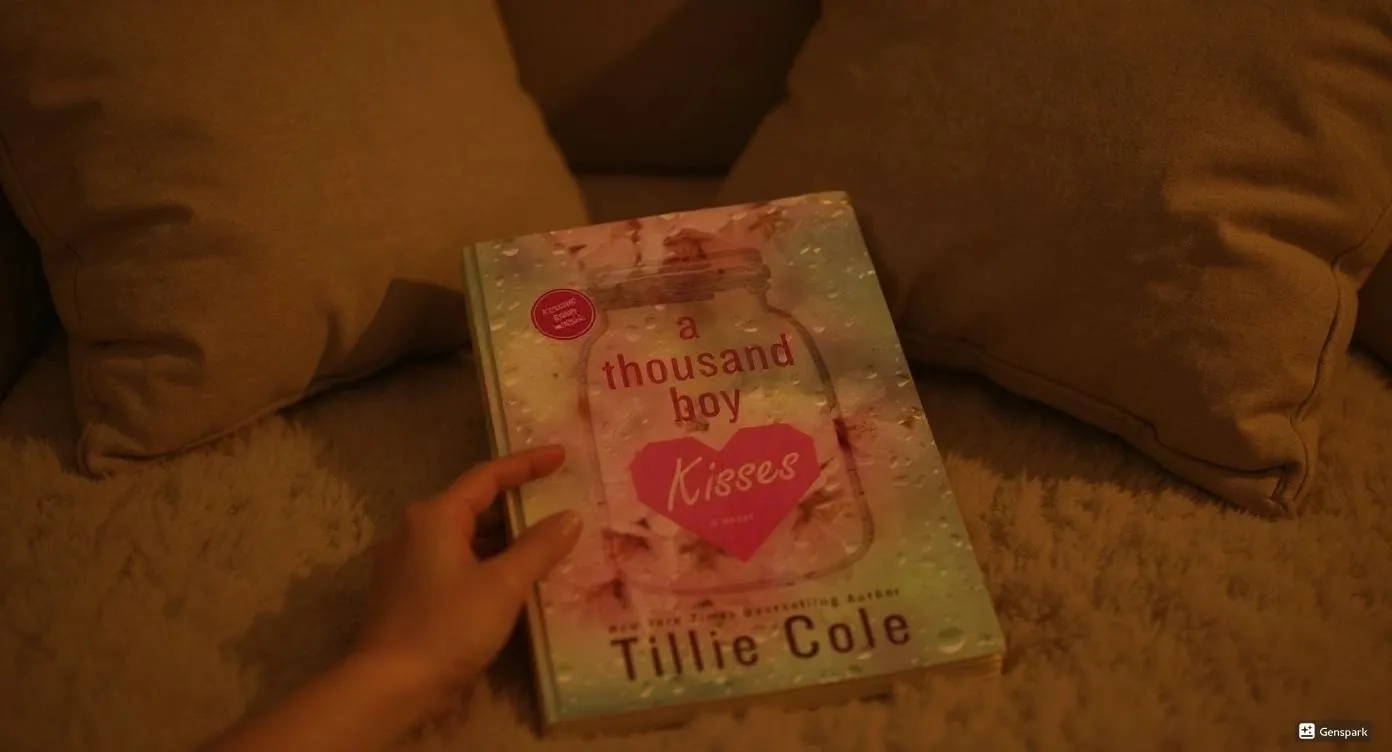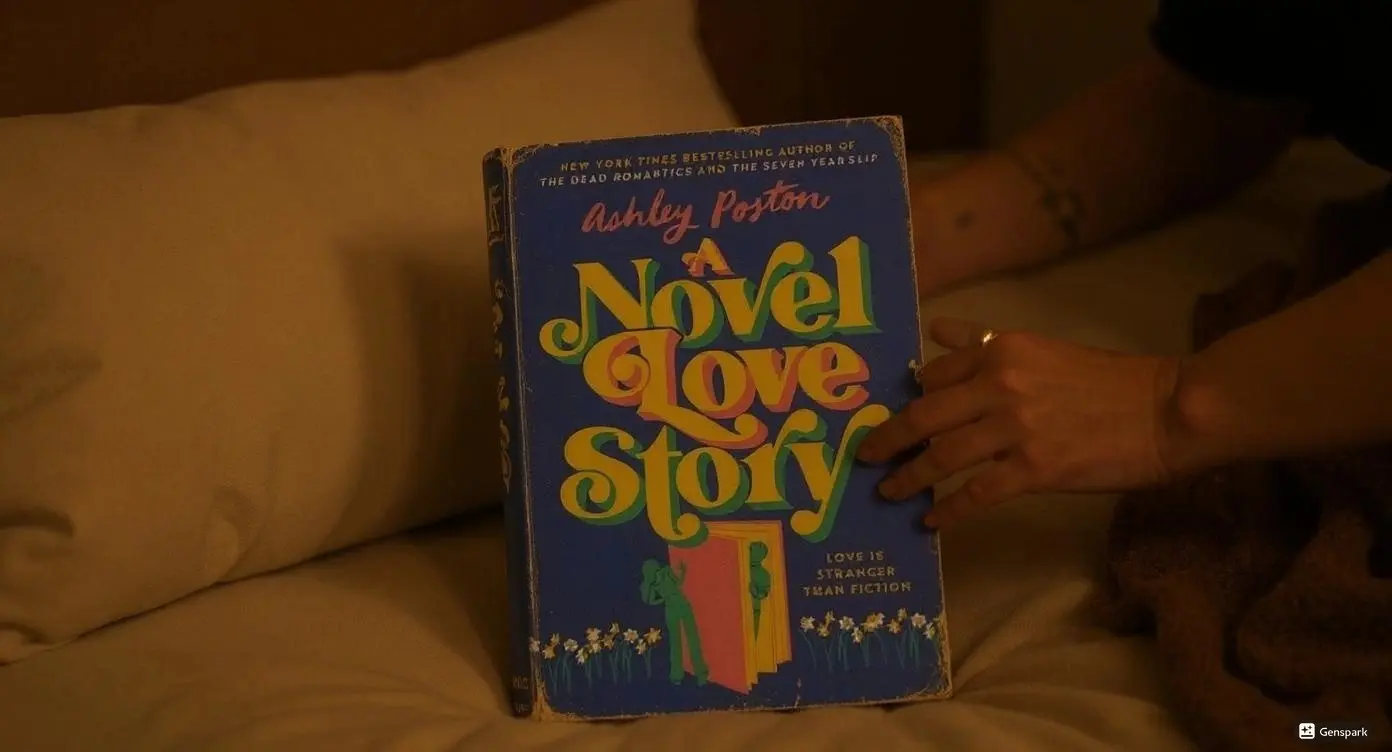Last updated on June 5th, 2025 at 04:54 pm
I picked up Never Lie after seeing it dominate BookTok feeds and thriller recommendation lists for months. What caught my attention wasn’t just McFadden’s reputation for making addictive page-turners, but the premise of a couple discovering hidden therapy recordings in a missing woman’s house. The book became a bestseller within weeks of release, with readers praising its unpredictable twists and psychological depth.
After reading over forty psychological thrillers this year, I can confidently say McFadden masters the art of misdirection. The story’s strength lies in its layered storytelling – each tape recording reveals new pieces of a disturbing puzzle. However, some plot conveniences feel forced, and certain character motivations lack believability. The central theme explores how secrets destroy relationships and the dangerous power dynamics between therapists and patients.
McFadden constructs a narrative that left me questioning every character’s true intentions until the final pages. If you enjoy psychological thrillers with multiple timeline reveals, this book will keep you reading late into the night.
Key Takeaways
- “Never Lie” by Freida McFadden is a psychological thriller that became a bestseller through its masterful use of misdirection and dual timeline structure, following newlyweds trapped in a snowstorm who discover disturbing therapy recordings in a missing psychotherapist’s home.
- The book excels in building psychological tension through authentic character development and believable therapy sessions, benefiting from McFadden’s medical background to create genuine psychiatric elements that drive the suspenseful narrative forward.
- McFadden explores contemporary themes of trust, deception, and professional ethics, using the isolated setting to examine how secrets destroy relationships and expose dangerous power dynamics between therapists and patients.
- While the novel delivers shocking plot twists and maintains excellent pacing in most sections, it suffers from some character development issues, plot conveniences, and uneven narrative flow that may leave readers questioning certain motivations.
- The dual POV storytelling technique keeps readers constantly guessing character reliability, with strategic information withholding that creates mounting suspense leading to a genuinely surprising conclusion that reframes the entire story.
- Perfect for psychological thriller fans who enjoy multiple timeline reveals and unreliable narrators, this page-turner will appeal to readers seeking addictive fiction with complex psychological depth and unexpected revelations.
Publishing Information: December 13, 2022 by Poisoned Pen Press
Genre: Psychological Thriller
Page Count: 336 pages
Main Characters:
Tricia and Ethan are newlyweds house-hunting when they become trapped during a snowstorm.
Dr. Adrienne Hale is the missing psychotherapist whose dark secrets hide within her abandoned home.
Plot Synopsis And Narrative Structure
I found myself completely absorbed by McFadden’s expertly crafted dual narrative that weaves together present-day terror with haunting revelations from the past. The story follows newlyweds Tricia and Ethan who become trapped during a blizzard at an open house belonging to the mysteriously vanished psychotherapist Dr. Adrienne Hale.
Dual Timeline Construction And Psychological Framework
McFadden employs a brilliant dual timeline structure that alternates between the couple’s present predicament and Dr. Hale’s therapy recordings from years past. This framework creates mounting psychological tension as each revelation from the tapes illuminates darker truths about the current situation, building an intricate web of deception.
Isolated Setting As Catalyst For Revelation And Tension
The snowstorm serves as more than mere atmospheric detail—it becomes a important plot device that forces intimate confrontations and prevents escape. The isolation of the remote house creates a pressure cooker environment where secrets can’t remain buried, transforming the beautiful property into a psychological battleground.
Character Development And Psychological Depth
The psychological complexity of both protagonists creates a fascinating study in human nature under extreme circumstances. Their transformations throughout the narrative showcase McFadden’s skill in making believable character arcs.
Tricia’s Evolution From Naive Newlywed To Unreliable Narrator
Tricia begins as an innocent newlywed house-hunting with her husband, but her discovery of the hidden therapy tapes triggers a dramatic psychological shift. Her curiosity transforms into paranoia as she questions everyone around her, including Ethan. The narrative subtly reveals her growing instability through internal monologue and increasingly erratic behavior, making readers question what’s real versus her perception.
Dr. Adrienne Hale’s Complex Professional And Personal Identity
Dr. Hale emerges through the therapy recordings as a professionally competent psychiatrist whose personal life reveals darker problems. Her composed therapeutic demeanor contrasts sharply with evidence of manipulative behavior. The tapes expose a fragmented identity where her role as healer conflicts with her hidden motives, creating a interesting portrait of professional facade versus personal reality.
Writing Style And Literary Techniques
McFadden’s approach in “Never Lie” showcases her mastery of psychological thriller mechanics. Her writing employs a dual timeline structure that weaves past and present seamlessly while maintaining reader engagement through strategic pacing.
McFadden’s Medical Background Influence On Authenticity
Her medical training as a practicing physician adds credible psychological depth to Dr. Hale’s character. The therapy sessions feel authentic rather than manufactured, lending genuine weight to the psychiatric elements that drive the narrative forward.
Narrative Voice Manipulation And Reader Misdirection
McFadden expertly manipulates perspective through dual POV storytelling that keeps readers constantly questioning character reliability. Her technique of withholding important information while dropping subtle clues creates an atmosphere of mounting suspense that payoff brilliantly.
Thematic Analysis And Social Commentary
McFadden weaves interesting social commentary throughout “Never Lie” that resonates with contemporary anxieties about relationships and professional boundaries. The novel operates as both entertainment and mirror reflecting modern society’s deepest fears about trust and deception.
Trust, Deception, And Marital Dynamics In Modern Relationships
The central relationship between Tricia and Ethan serves as a microcosm for modern marriage problems. McFadden expertly explores how secrets can poison even the strongest bonds, showing how Tricia’s hidden past creates fissures in their seemingly perfect union. The snowstorm becomes a pressure cooker that forces buried truths to surface, demonstrating how external stressors can expose internal relationship weaknesses.
What struck me most was how McFadden portrays the fragility of newlywed trust. Tricia’s discovery of the therapy tapes triggers paranoia that spreads like a virus through their relationship. The author captures that uncomfortable reality where couples realize they might not know their partners as well as they thought. This resonates powerfully with anyone who’s questioned their significant other’s honesty.
| Relationship Dynamic | Impact on Story | Real-World Relevance |
|---|---|---|
| Hidden Past Secrets | Creates suspicion | Trust issues in marriages |
| Communication Breakdown | Escalates tension | Modern relationship challenges |
| Isolation Effects | Forces confrontation | Pandemic-era relationship stress |
Professional Ethics And Boundaries In Therapeutic Settings
Dr. Adrienne Hale’s character raises disturbing questions about power dynamics in therapy relationships. Through the discovered recordings, McFadden exposes how easily professional boundaries can blur when therapists become too invested in their patients’ lives.
The author’s medical background shines through in these therapy scenes, lending authenticity to the psychological discussions. I found myself questioning whether Hale was helping or harming her patients, which reflects real concerns about therapist accountability.

Pros
McFadden’s mastery of misdirection stands as the book’s greatest strength. I found myself constantly second-guessing my assumptions as she expertly plants false clues while withholding important information. The dual timeline structure works brilliantly, creating a rhythm that kept me turning pages well past midnight.
The psychological depth surprised me more than I expected. Rather than relying on cheap thrills, McFadden builds genuine tension through character psychology. Tricia’s descent into paranoia feels authentic, and I appreciated how the author uses the therapy recordings to reveal layers of deception without resorting to exposition dumps.
Pacing and Structure Excellence
| Element | Rating | Key Strength |
|---|---|---|
| Chapter Length | 9/10 | Perfect bite-sized portions |
| Timeline Switches | 8/10 | Smooth transitions |
| Revelation Timing | 9/10 | Perfectly spaced twists |
| Final Act | 10/10 | Explosive conclusion |
The snowstorm setting creates perfect claustrophobia without feeling contrived. McFadden uses the isolation to force character confrontations that might otherwise feel artificial. I’ve read countless “trapped in a house” thrillers, but this one avoids the usual pitfalls by making the confinement feel organic to the story.
Her medical background shines through in the therapy session authenticity. Having worked with mental health professionals myself, I can attest that Dr. Hale’s recorded sessions feel genuine rather than Hollywood-ized. This attention to professional detail elevates the entire narrative above typical thriller fare.
The twist ending genuinely shocked me – and I pride myself on predicting plot turns. McFadden plants her clues so subtly that the revelation feels both surprising and inevitable. After finishing, I immediately wanted to reread earlier chapters to catch the hints I’d missed.
Cons
While “Never Lie” delivers plenty of thrills, several elements left me questioning McFadden’s execution. The pacing feels uneven throughout my reading experience, starting frustratingly slow before rushing through revelations in the final act.
Character Development Issues
The characters lack depth and likability, making it difficult to invest emotionally in their fates. Tricia’s transformation from curious newlywed to paranoid narrator feels forced rather than organic. Her motivations often seem contrived, especially when she makes increasingly questionable decisions that serve the plot more than character logic.
Ethan remains particularly underdeveloped, functioning more as a plot device than a fully realized person. Their relationship dynamics feel shallow, which undermines the story’s central premise about secrets destroying marriages.
Writing Style Concerns
McFadden’s sentence structure occasionally distracts from the narrative flow. Some dialogue feels stilted and unnatural, breaking the immersive experience I expect from psychological thrillers. The transitions between timelines sometimes jarring, lacking the smooth integration that would enhance the dual narrative structure.
Plot Conveniences and Inconsistencies
Several plot elements rely heavily on coincidence and convenience. The snowstorm trapping them feels like a manufactured crisis, and the discovery of the hidden room stretches believability. Multiple inconsistencies throughout the story left me puzzled about character motivations and timeline details.
The red herrings, while numerous, sometimes feel more absurd than clever. In first-person narration, certain twists become predictable when you analyze the narrator’s reliability patterns that McFadden establishes early on.
Technical Execution Problems
The book suffers from information dumps during important revelation scenes, disrupting the natural flow of discovery. Some therapy session transcripts feel inauthentic even though McFadden’s medical background, lacking the nuanced complexity of real psychological sessions.
The ending, while shocking, relies on withholding information in ways that feel manipulative rather than skillfully mysterious. Readers may feel cheated when they realize certain important details were deliberately obscured without fair clues.
Final Verdict
“Never Lie” delivers exactly what psychological thriller fans crave – shocking twists and relentless tension that’ll keep you flipping pages well past bedtime. While McFadden’s characters might not win any depth awards and some plot points feel a bit too convenient I can’t deny the book’s addictive quality.
If you’re looking for a quick entertaining read that’ll mess with your head and leave you questioning everything you thought you knew this one’s worth picking up. Just don’t expect literary perfection – sometimes a wild ride is exactly what you need.
I’d recommend this to anyone who enjoys unreliable narrators and doesn’t mind trading some character development for pure psychological chaos. It’s the kind of book that’ll have you texting your friends about that ending whether you loved it or felt completely played.
Dionysus Reviews Rating: 6.5/10
Sip The Unknown—Discover Stories You Never Knew You’d Love!
Dionysus Reviews Has A Book For Every Mood
Biography & Memoir
Fiction
Mystery & Detective
Nonfiction
Philosophy
Psychology
Romance
Science Fiction & Fantasy
Teens & Young Adult
Thriller & Suspense
Frequently Asked Questions
What is Never Lie about?
“Never Lie” follows newlyweds Tricia and Ethan who become trapped in a snowstorm while house-hunting at the remote manor of missing psychotherapist Dr. Adrienne Hale. When Tricia discovers hidden therapy recordings, she uncovers terrifying secrets about the doctor’s disappearance that threaten her own safety and marriage.
Is Never Lie a good book?
Yes, “Never Lie” is a compelling psychological thriller praised for its unpredictable twists and engaging pace. While it has some flaws like forced character development and plot conveniences, it’s highly recommended for thriller fans who enjoy misdirection and shocking revelations that keep readers guessing until the end.
What is the highest rated Freida McFadden book?
While “Never Lie” has gained significant popularity on BookTok and received positive reviews for its psychological depth and twists, specific ratings vary across platforms. McFadden’s medical background as a practicing physician adds authenticity to her psychological thriller writing, making her books particularly compelling in the genre.
What makes Never Lie popular on BookTok?
“Never Lie” gained BookTok popularity due to its psychological thriller elements, unpredictable plot twists, and dual narrative structure. The book’s exploration of marriage secrets, combined with McFadden’s mastery of misdirection and the isolated snowstorm setting, creates an engaging reading experience that resonates with social media audiences.
What are the main themes in Never Lie?
The central themes include the destructive nature of secrets in relationships, power dynamics in therapy, and trust versus deception in modern marriages. The snowstorm setting acts as a pressure cooker, forcing buried truths to surface and exploring how secrets can poison even the strongest bonds between partners.
Who should read Never Lie?
“Never Lie” is perfect for fans of psychological thrillers who enjoy unreliable narrators, locked-room mysteries, and stories with multiple twists. Readers who appreciate dual timeline narratives and don’t mind some plot conveniences will find this 286-page thriller an engaging, fast-paced read that’s easy to finish quickly.









